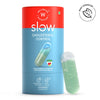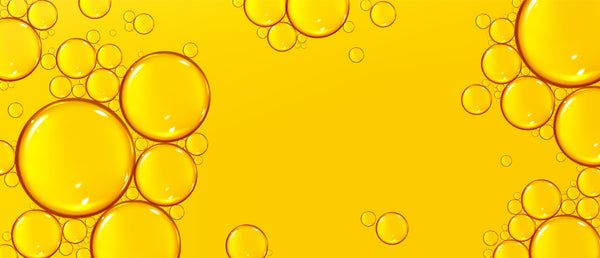Alcohol is often a common part of social gatherings and weekly routines, but have you ever considered its effects on cholesterol levels and heart health? While you might hear mixed messages, it’s important to understand how alcohol interacts with cholesterol and what that means for your long-term well-being.
Does Alcohol Increase Cholesterol?
Yes, alcohol affects cholesterol levels, but its impact varies based on the amount and frequency of consumption. While some studies suggest that moderate alcohol intake—especially red wine—might help raise HDL (good cholesterol), excessive drinking can lead to higher triglycerides and increased LDL (bad cholesterol), which are major risk factors for heart disease.
Even moderate alcohol consumption can interfere with the body's ability to metabolize cholesterol efficiently, potentially increasing the risk of plaque buildup in arteries and leading to cardiovascular issues over time.
How Alcohol Affects Cholesterol Metabolism
Alcohol influences cholesterol metabolism in several ways:
-
Raises Triglycerides: Alcohol consumption contributes to higher triglyceride levels, which can increase LDL cholesterol and lower HDL cholesterol, leading to an imbalance that negatively impacts heart health.
-
Liver Stress: Since the liver is responsible for both metabolizing alcohol and regulating cholesterol levels, excessive drinking can lead to liver dysfunction, making it harder for the body to remove excess LDL cholesterol from the bloodstream.
-
Weight Gain and Insulin Resistance: Many alcoholic beverages are high in sugar and empty calories, which can lead to weight gain and insulin resistance—both of which contribute to higher cholesterol levels and increased cardiovascular risks.
Does the Type of Alcohol Matter?
While all alcoholic beverages can impact cholesterol, different types have varying effects:
-
Beer: High in carbohydrates, beer can contribute to increased triglycerides and weight gain.
-
Hard Liquor: Though lower in carbs, excessive intake can still raise LDL cholesterol and triglycerides.
-
Cocktails: These are often packed with sugar, causing triglyceride spikes and worsening cholesterol levels.
-
Red Wine: Contains antioxidants like resveratrol, which may support HDL cholesterol, but only when consumed in moderation. On the other hand, excess red wine consumption can raise triglycerides and LDL (bad cholesterol), increasing the risk of heart disease and arterial plaque buildup.
Ultimately, your drinking habits matter more than the type of alcohol. Excessive drinking can negate any potential benefits and lead to long-term heart risks.
Understanding the Long-Term Risks
Drinking too much alcohol over time can lead to severe cardiovascular consequences. The biggest risks include:
-
Higher LDL (bad cholesterol): Promotes plaque buildup in arteries, increasing the risk of heart disease and stroke.
-
Elevated Triglycerides: High triglycerides can lead to pancreatitis, metabolic disorders, and an increased risk of atherosclerosis.
-
Liver Damage: A stressed liver struggles to regulate cholesterol and fat metabolism, leading to imbalanced lipid profiles and a higher risk of fatty liver disease.
-
Weight Gain: Excess calories from alcohol contribute to obesity, which is closely linked to high cholesterol, insulin resistance, and heart disease.
-
Increased Inflammation: Chronic alcohol consumption can trigger systemic inflammation, which further damages blood vessels and accelerates cardiovascular disease.
How to Maintain Healthy Cholesterol
If you enjoy alcohol, taking a mindful approach can help you maintain healthy cholesterol levels and support heart health. Here’s how:
1. Stick to Moderate Drinking
Excess alcohol consumption can raise triglycerides and contribute to heart disease. The recommended limit is one drink per day for women and up to two drinks per day for men—where one drink is roughly 150 ml of wine, 350 ml of beer, or 45 ml of distilled spirits.
2. Eat a Heart-Healthy Diet
Alcohol can impact cholesterol levels, but pairing it with the right foods can help:
-
Increase fiber intake: Whole grains, legumes, and vegetables help lower LDL (bad cholesterol).
-
Prioritize omega-3s: Fatty fish like salmon, chia seeds, and walnuts help balance cholesterol.
-
Include plant sterols: Found in nuts, seeds, and fortified foods, these help reduce LDL cholesterol absorption.
3. Incorporate Smart Supplements
Certain natural supplements can help support your heart and cholesterol levels:
-
Plant sterols: These work by blocking cholesterol absorption in the intestines.
-
Omega-3 fatty acids: Found in fish oil or algae-based supplements, they help manage triglycerides.
-
Milk thistle & turmeric: These support liver health, aiding alcohol metabolism and detoxification.
4. Exercise Regularly
Physical activity can counteract some of the negative effects of alcohol by boosting HDL (good cholesterol) and reducing inflammation. Aim for at least 150 minutes of moderate exercise per week, such as brisk walking, cycling, or strength training.
5. Hydrate and Detox
Alcohol dehydrates the body and places stress on the liver, so staying hydrated is essential:
-
Drink plenty of water: Aim for at least one glass of water per alcoholic beverage to stay hydrated.
-
Eat liver-supporting foods: Leafy greens, turmeric, beets, garlic, and citrus fruits help your liver break down alcohol more efficiently.
6. Limit Sugary Mixers
Sugary cocktails can increase triglyceride levels and spike blood sugar, making alcohol even harder on the body. Instead of sugar-laden syrups or sodas, opt for:
-
Soda water with fresh lime
-
Unsweetened herbal infusions
-
Freshly squeezed citrus juices in moderation
Final Thoughts
Alcohol has a direct impact on cholesterol levels, with its effects depending on how much and how often it is consumed. While moderate red wine intake may offer certain cardiovascular benefits, excessive alcohol consumption raises cholesterol, increases triglycerides, and heightens the risk of heart disease over time.
Making mindful choices—such as limiting alcohol intake, following a heart-healthy diet, and incorporating natural cholesterol-reducing supplements—can help maintain better balance. Prioritizing heart health today supports long-term well-being and vitality.



























